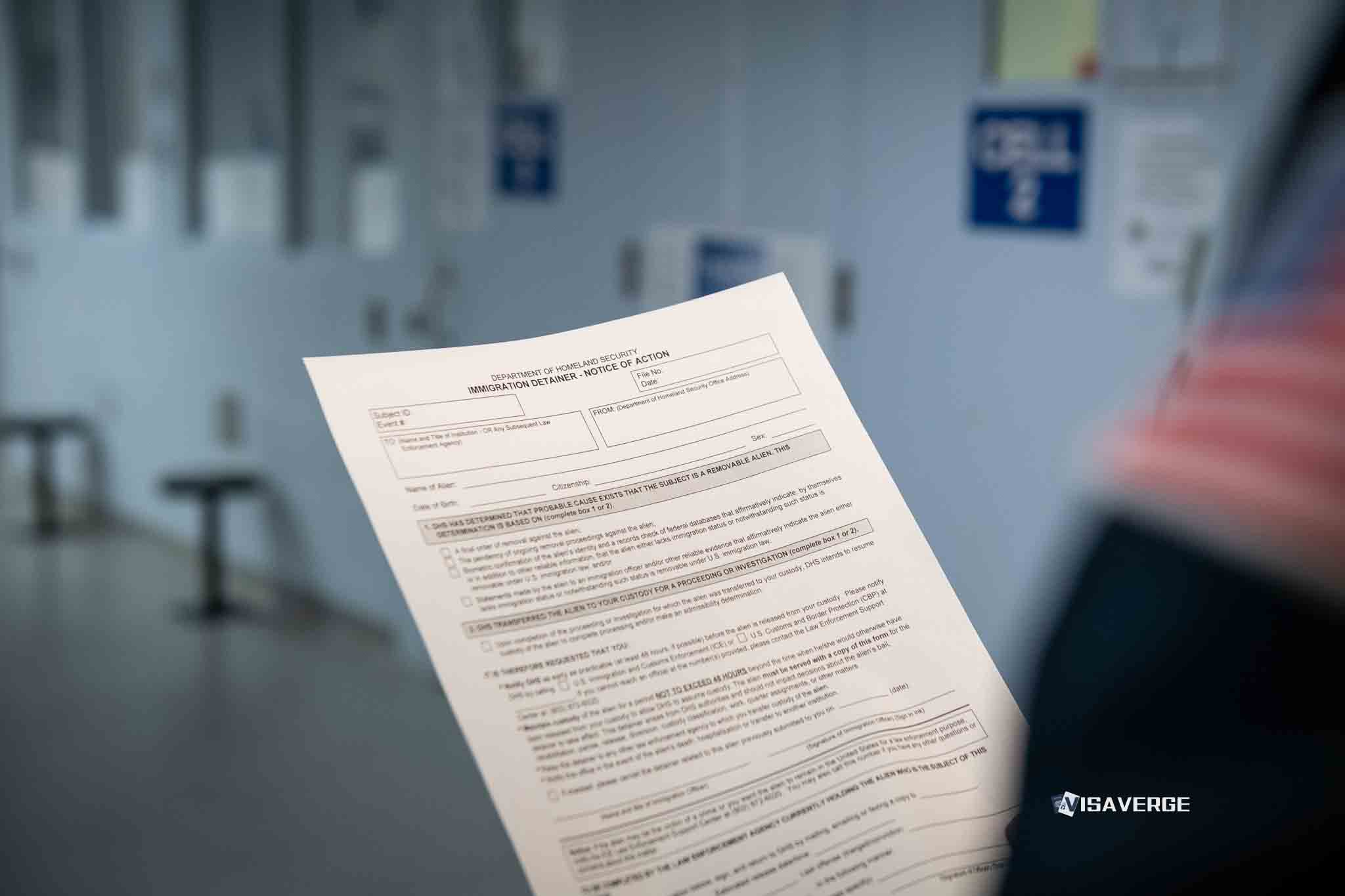Understanding the Consequences of Overstaying a Visa in the UK
Overstaying a visa in the UK is a situation that several international visitors and residents might find themselves in—but it is important to understand the serious implications that such an action can entail. Whether the overstay is due to a simple mistake, unforeseen circumstances, or willful ignorance, the outcome can affect one’s ability to stay in or return to the UK.
What Happens When You Overstay Your UK Visa?
If you remain in the UK beyond the expiration date of your visa without obtaining an extension or settling your immigration status, you are considered an overstayer. The UK Home Office is alerted to this situation through their monitoring systems, and this triggers the potential for a range of UK visa overstay consequences.
Immediate Consequences of Overstaying
Once you have overstayed your visa by even one day, you lose some of your legal rights in the UK. Here’s what could happen:
- Your current visa may be voided.
- Any applications you make for an extension or a new UK visa can be refused.
- You may be barred from opening a bank account, renting a property, or working.
- Access to public funds and services could be suspended.
In addition to the immediate impacts, overstaying can have long-term implications on your immigration profile and future travel plans.
Long-Term Penalties for Overstaying UK Visa
The UK has established strict penalties for overstayers to deter individuals from remaining beyond their visa terms:
- Re-entry bans: Depending on the length of your overstay, you can face a re-entry ban ranging from one to ten years.
- Deportation and removal: An overstay can lead to your detention and enforced removal from the UK.
- Future visa complications: Your immigration history will show the overstay, which could heavily impact the success of future visa applications or travel to the UK.
Here is a https://www.gov.uk/visa-information“>link to the official UK visa information page, which provides valuable guidance on maintaining legal visitor or resident status.
How to Avoid Overstaying Your Visa
The best advice is to always be proactive in managing your visa status:
- Monitor your visa expiry date and plan ahead. It’s crucial not to wait until the last moment to take action.
- If circumstances out of your control arise, contact the UK Home Office immediately for guidance. There is a possibility of an extension or an adjustment of stay under certain compassionate circumstances.
- Familiarize yourself with the UK Government’s visa extension policies to ensure that you remain compliant with immigration rules.
Handling an Overstay Situation
If you realise you have overstayed:
- Seek immediate legal advice from an immigration lawyer or advisor.
- Check to see if you can regularize your visa status by applying for the necessary extensions or changes.
- Communicate openly with the Home Office; hiding your overstay can worsen the situation.
Honesty and prompt action are vital when dealing with an overstay. The UK Home Office has systems to consider genuine reasons for overstaying, but you must adhere to their procedures.
For more information, you can access official resources provided by the UK Visas and Immigration services.
Final Thoughts
Staying compliant with your visa terms is essential for a trouble-free experience in the UK. Overstaying can seem innocuous at first, but it carries heavy lapses in immigration status and can jeopardize your ability to travel or settle in the UK. If you find yourself in an overstay situation, act with integrity and urgency to mitigate the potential long-term damage to your immigration record. Always seek professional advice and make use of official resources to guide your actions.
Expert Insights
Did You Know?
- The United States has the highest number of immigrants in the world, with over 44 million immigrants residing within its borders as of 2019. This accounts for approximately 13.7% of the total U.S. population.
- Canada is known for its immigration-friendly policies and is home to the highest percentage of foreign-born population among the G7 countries. As of 2021, over 22% of Canada’s population is made up of immigrants.
-
Australia has a unique immigration program called the “Skilled Migration Program,” which attracts highly skilled individuals from around the world. Through this program, Australia grants visas to individuals with specific skills and qualifications that are in demand in the country.
-
Immigrants contribute significantly to their host countries’ economies. In the United States, for example, immigrants make up around 17% of the workforce and have founded approximately 40% of Fortune 500 companies.
-
Immigration patterns and trends have changed throughout history. Between 1880 and 1920, the United States experienced a massive influx of immigrants, primarily from European countries. Today, however, the majority of immigrants in the United States come from countries in Asia, Latin America, and Africa.
-
The United Nations recognizes December 18th as International Migrants Day, a day dedicated to raising awareness about the challenges and contributions of migrants around the world.
-
Immigration can have a positive effect on cultural diversity. It brings new languages, traditions, and perspectives, enriching the social fabric of host countries and promoting intercultural understanding.
-
In many countries, immigration policies have strict age requirements for skilled worker programs. For instance, Canada’s Express Entry system awards additional points to applicants who are between the ages of 20 and 29, as they are considered to have a higher chance of integrating into the workforce successfully.
-
The concept of birthright citizenship, which grants citizenship to individuals born within a country’s territory, is not universally recognized. Some countries, such as Germany and Japan, have more restrictive citizenship laws based on descent or bloodline.
-
Contrary to popular belief, the majority of refugees are hosted by developing countries. According to the United Nations Refugee Agency (UNHCR), about 85% of refugees reside in developing regions, often placing a significant burden on those nations.
-
Immigrants are often more entrepreneurial and motivated to start businesses than native-born citizens. Studies have shown that immigrants are more likely to become entrepreneurs and create jobs, contributing to economic growth and innovation.
-
The Immigration and Nationality Act of 1965 in the United States replaced the discriminatory quota system that favored immigrants from specific countries. The new law prioritized family reunification and attracted skilled workers, resulting in a more diverse immigrant population.
-
The H-1B visa program in the United States allows employers to temporarily hire foreign workers in specialty occupations. However, there is an annual cap on the number of visas issued, leading to fierce competition among employers and potential employees.
-
In 2017, Germany enacted a law that recognized the “third gender” option on official identification documents. This progressive step allows individuals who do not identify as male or female to choose “diverse” as their gender.
-
Migration can have positive effects on the countries of origin as well. Remittances, the money sent back to home countries by migrants, often play a significant role in supporting families and economies, contributing to poverty reduction and development.
These intriguing facts shed light on various aspects of immigration, from the scale of global migration to the economic contributions of immigrants and the diverse policies implemented by different countries. They demonstrate the importance of understanding immigration’s multifaceted nature and the impact it has on societies worldwide.
Learn today
Glossary or Definitions
- Visa: A visa is an official authorization granted by a country’s government that allows foreign nationals to enter, stay, or transit through that country for a specific period and purpose.
- Overstay: Overstay refers to the act of remaining in a country beyond the validity of a visa or the authorized period of stay.
-
UK Home Office: The UK Home Office is the British government department responsible for immigration, security, and law enforcement within the United Kingdom.
-
UK Visa Overstay Consequences: The range of potential adverse effects or outcomes that can result from overstaying a UK visa, which may include visa refusal, loss of legal rights, restriction on access to services, deportation, and future visa complications.
-
Voided Visa: When a visa is voided, it means that the visa becomes invalid and is no longer legally recognized. Overstaying a visa can result in the current visa being voided.
-
Re-entry Ban: A re-entry ban is a prohibition imposed by an immigration authority, which prevents an individual who has overstayed their visa from returning to the country for a specific period of time. The duration of the ban can vary depending on the length of the overstay.
-
Deportation and Removal: Deportation refers to the process of forcibly removing an individual from a country due to violations of immigration laws. Removal is the act of physically taking an individual out of the country. Overstaying a UK visa can lead to detention, deportation, and enforced removal.
-
Immigration Profile: An individual’s immigration profile refers to their history, records, and status regarding immigration and visa-related matters. Overstaying a visa can have long-term implications on an individual’s immigration profile, which can impact future visa applications and travel plans.
-
Compliance: Compliance refers to adhering to and following the rules and regulations set by immigration authorities, such as maintaining legal status, abiding by visa conditions, and fulfilling immigration requirements.
-
UK Visas and Immigration: UK Visas and Immigration is an agency within the UK Home Office responsible for managing immigration matters and processing visa applications.
-
Regularize: Regularize means to bring one’s immigration status into compliance with the requirements and conditions set by immigration authorities. This can involve applying for necessary extensions or changes to an existing visa.
-
Immigration Lawyer or Advisor: An immigration lawyer or advisor is a legal professional who specializes in immigration law and provides expert advice and assistance to individuals navigating immigration processes and issues.
Note: The provided glossary includes key terms that are specific to the content “Understanding the Consequences of Overstaying a Visa in the UK.” It is not an exhaustive glossary of all immigration-related terms but rather focuses on terms relevant to the discussed topic.
So remember, folks, overstaying your visa in the UK is no joke! From losing legal rights to facing re-entry bans and even deportation, the consequences can be a real headache. But fear not! For more valuable insights and expert advice on visas and immigration, head over to visaverge.com and explore to your heart’s content. Stay informed, stay compliant, and happy travels!
FAQ’s to know:
FAQ 1: What are the consequences of overstaying a visa in the UK?
When you overstay your visa in the UK, you face several consequences. The UK Home Office is alerted to your overstay, which can result in your current visa being voided and your applications for visa extensions or new visas being refused. Furthermore, you may be barred from accessing services like opening a bank account, renting a property, or working. Access to public funds and services may also be suspended. Overstaying can have long-term penalties, including re-entry bans ranging from one to ten years, deportation and removal, and complications with future visa applications or traveling to the UK.
FAQ 2: How can I avoid overstaying my visa in the UK?
To avoid overstaying your visa in the UK, it is crucial to be proactive and monitor your visa expiry date. Plan ahead and take action before the expiration date. If unforeseen circumstances arise, contact the UK Home Office immediately for guidance, as there may be possibilities for an extension or adjustment of stay under certain compassionate circumstances. Familiarize yourself with the UK Government’s visa extension policies to ensure compliance with immigration rules.
FAQ 3: What should I do if I realize I have overstayed my visa in the UK?
If you realize that you have overstayed your visa in the UK, it is important to take immediate action. Seek legal advice from an immigration lawyer or advisor, as they can provide guidance tailored to your situation. Check if you can regularize your visa status by applying for the necessary extensions or changes. It is crucial to communicate openly with the Home Office; hiding your overstay can worsen the situation. Acting with honesty, promptness, and seeking professional advice are vital when dealing with an overstay situation. The UK Home Office has systems to consider genuine reasons for overstaying, but it is essential to adhere to their procedures.
What did you learn? Answer below to know:
- What are the potential immediate consequences of overstaying a UK visa?
a) Loss of legal rights
b) Possibility of re-entry ban
c) Suspension of public funds and services
d) All of the above
- How long can a re-entry ban for overstaying a UK visa last?
a) Up to 1 year
b) Up to 5 years
c) Up to 10 years
d) Up to 20 years
- What is the recommended course of action if you realize you have overstayed your visa in the UK?
a) Hide the overstay and hope it goes unnoticed
b) Seek legal advice from an immigration lawyer
c) Apply for a visa extension immediately
d) Regularize your visa status without informing the Home Office














